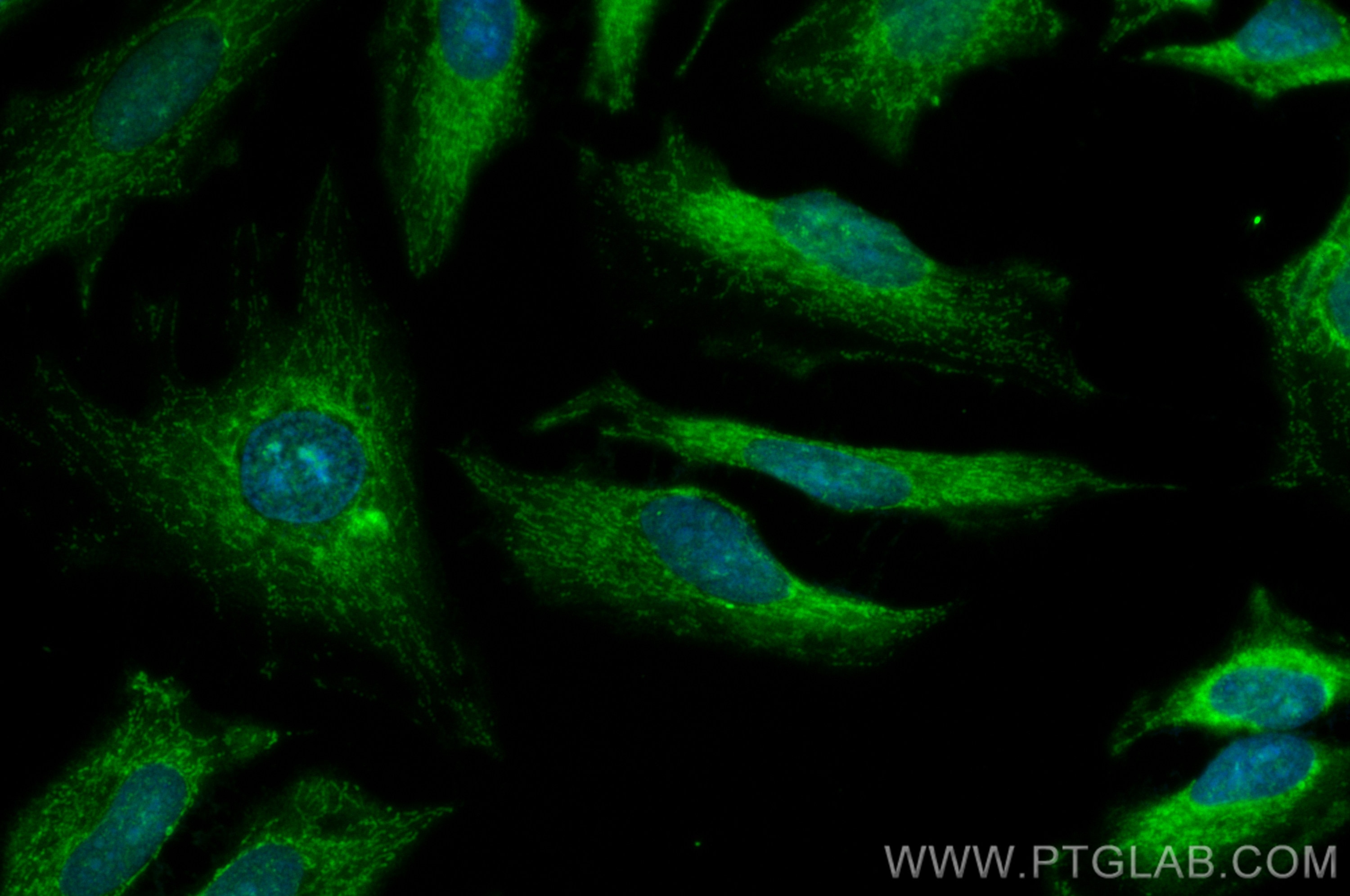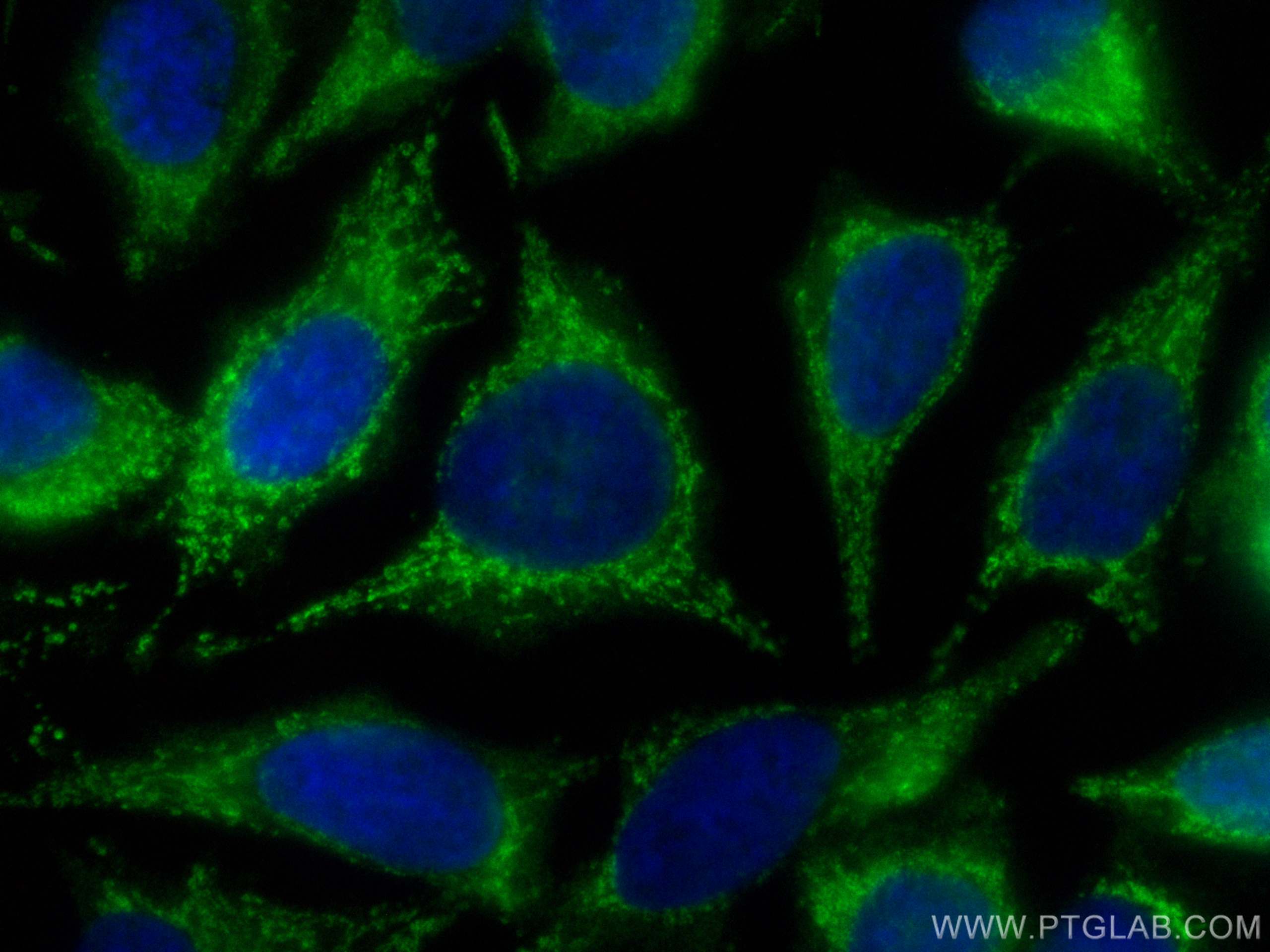Tested Applications
| Positive IF/ICC detected in | HeLa cells |
Recommended dilution
| Application | Dilution |
|---|---|
| Immunofluorescence (IF)/ICC | IF/ICC : 1:200-1:1600 |
| It is recommended that this reagent should be titrated in each testing system to obtain optimal results. | |
| Sample-dependent, Check data in validation data gallery. | |
Product Information
CL488-11305 targets ECHS1 in IF/ICC applications and shows reactivity with human, mouse, rat samples.
| Tested Reactivity | human, mouse, rat |
| Host / Isotype | Rabbit / IgG |
| Class | Polyclonal |
| Type | Antibody |
| Immunogen |
CatNo: Ag1842 Product name: Recombinant human ECHS1 protein Source: e coli.-derived, PGEX-4T Tag: GST Domain: 1-290 aa of BC008906 Sequence: MAALRVLLSCVRGPLRPPVRCPAWRPFASGANFEYIIAEKRGKNNTVGLIQLNRPKALNALCDGLIDELNQALKIFEEDPAVGAIVLTGGDKAFAAGADIKEMQNLSFQDCYSSKFLKHWDHLTQVKKPVIAAVNGYAFGGGCELAMMCDIIYAGEKAQFAQPEILIGTIPGAGGTQRLTRAVGKSLAMEMVLTGDRISAQDAKQAGLVSKICPVETLVEEAIQCAEKIASNSKIVVAMAKESVNAAFEMTLTEGSKLEKKLFYSTFATDDRKEGMTAFVEKRKANFKDQ Predict reactive species |
| Full Name | enoyl Coenzyme A hydratase, short chain, 1, mitochondrial |
| Calculated Molecular Weight | 31 kDa |
| Observed Molecular Weight | 29-31 kDa |
| GenBank Accession Number | BC008906 |
| Gene Symbol | ECHS1 |
| Gene ID (NCBI) | 1892 |
| RRID | AB_3083898 |
| Conjugate | CoraLite® Plus 488 Fluorescent Dye |
| Excitation/Emission Maxima Wavelengths | 493 nm / 522 nm |
| Excitation Laser | Blue laser (488 nm) |
| Form | Liquid |
| Purification Method | Antigen affinity purification |
| UNIPROT ID | P30084 |
| Storage Buffer | PBS with 50% glycerol, 0.05% Proclin300, 0.5% BSA, pH 7.3. |
| Storage Conditions | Store at -20°C. Avoid exposure to light. Stable for one year after shipment. Aliquoting is unnecessary for -20oC storage. |
Background Information
Enoyl-coenzyme A hydratase (ECHS1) is a mitochondrial protein which catalyzes the hydration of 2-trans-enoyl-coenzyme A intermediates to L-3-hydroxyacyl-coenzyme A, playing key role in metabolism of fatty acids in mitochondria. ECHS1 is highly expressed in muscle, liver and fibroblasts. Altered expression of ECHS1 has been considered as a characteristic feature of mitochondria dysfunction. (23275097, 23235493)
Protocols
| Product Specific Protocols | |
|---|---|
| IF protocol for CL Plus 488 ECHS1 antibody CL488-11305 | Download protocol |
| Standard Protocols | |
|---|---|
| Click here to view our Standard Protocols |






